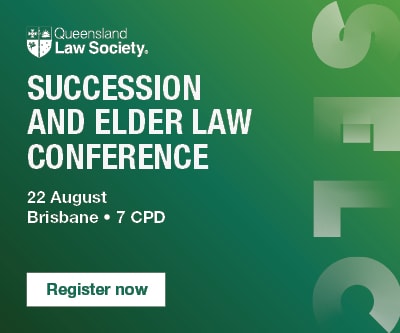Is your firm interested in Reconciliation? Has your firm thought about developing a Reconciliation Action Plan, but does not know where to begin?
Reconciliation is about bringing Aboriginal people and Torres Strait Islanders and other Australians together; unity between us; working to overcome division and inequality; and respect of Aboriginal and Torres Strait Islander heritage and valuing justice and equity for all.
Here is the top six QLS guide to assist you with some initial steps towards developing and implementing a Reconciliation Action Plan (RAP). For more information about the development and implementation of RAPs including templates visit Reconciliation Australia.
1. Aboriginal and Torres Strait Islander Protocols
Protocols are simply the ways in which to work appropriately, communicate and collaborate with people. Protocols are also standards of behaviour, respect and knowledge that needs to be adopted. Aboriginal and Torres Strait Islander protocols assist everyone with ways in which they can work, communicate and collaborate with the Aboriginal and Torres Strait Islander peoples and communities. They can be as a set of rules, regulations, processes, procedures, strategies, or guidelines. You may like to start thinking about ways in which your organisation can begin this process.
2. Acknowledgement and Recognition
Include Welcome to Country and Acknowledgements of Country to recognise Traditional Owners within your organisation e.g. on email signature, on websites, and in speeches acknowledge the Aboriginal traditional owners and of people as the custodians of the land, and when in the Torres Strait IsIands the traditional owners at meetings and events.
Welcome to Country
A Welcome to Country is ONLY, delivered by a Traditional Owner, or Aboriginal and/or Torres Strait Islander preferably Elder or person, who have been given permission from Traditional Owners, to welcome visitors to their Country. You can engage someone from your community to deliver one.
Acknowledgement of Country
An Acknowledgement of Country is an opportunity for anyone to show respect for Traditional Owners and the continuing connection of Aboriginal and Torres Strait Islander peoples to Country. It can be given by both non-Indigenous and Aboriginal and Torres Strait Islander peoples. There are no set protocols or wording however including the actual name of the local traditional owners is advisable. Here is an example:
We acknowledge the First Nations people as the original inhabitants of Australia. We recognise, respect and celebrate the cultural distinctions of First Nations people and value their rich and positive contribution to not only Queensland but also to the broader Australian society. We pay our respects to the Traditional Owners (insert name/s eg the Jagera and Turrbul peoples) and keepers of this land and acknowledge all elders past, present and future.
3. Consultation and Engagement
Connecting to Aboriginal and Torres Strait Islander communities is very important. If not undertaken properly, perception maybe seen as tokenistic and not taken seriously. There are a few ways to do this including:
- face to face meetings e.g. find out who the local Elders are
- reach out to local First Nations community groups and organisation in your area e.g. join and network via newsletters, emails, websites, and social media
- engage or start a First Nations Reference or Advisory group
- consider pro bono/discounted fees for First Nations peoples and encourage staff to volunteer in First Nations community and organisations.
Consultation and engagement is vital and advantageous in strengthening and rebuilding, healing, self-sufficiency, reconciliation, promotion, self-determination and self-management, forming partnership, and creating opportunities for the community.
4. Cultural Awareness
Cultural Awareness training broadens knowledge and understanding. Providing this opportunity for all staff from management down, will guide your organisation in correctly addressing the appropriate Aboriginal and Torres Strait Islander protocol procedures and processes. You may engage a Cultural Awareness consultant. Access and undertake online training resources e.g. Share Our Pride. A combination of these options is advised. Please contact the QLS RAP Coordination team for further information.
5. Opportunity and Involvement
First Nations participation and involvement where-ever possible should be encouraged. Through consultation and engagement, you will create and gain valuable contacts within the community. Any project or work situation has the potential to involve and create opportunity for First Nations peoples. Consider:
- appointing a First Nations work experience student
- providing clerkships
- encouraging First Nations recruitment. Boost this process by including appropriate wording in job vacancies i.e. Aboriginal and Torres Strait Islander applicants are encouraged to apply, or create an identified First Nations position.
6. Celebrate and Embrace
Don’t be hesitant to celebrate, engage with and embrace First Nations peoples and culture. There are numerous significant dates where your organisation can, participate in, and promote and advocate. Create a cultural calendar to remember significant dates:
- 26 January – The First Nations significance of Australia Day/Day of Mourning/Survival Day/Invasion Day
- 13 February – The Anniversary of the National Apology to the Stolen Generation
- 21 March – Harmony Day
- 26 May – National Sorry Day
- 26 May to 3 June – National Reconciliation Week
- 3 June – Mabo Day
- 1st full week of July – NAIDOC Week
- 4 August – National Aboriginal and Islander Children’s Day
- 9 August – International Day of the World’s Indigenous People
- 13 September – Anniversary of the UN Declaration on the Rights of Indigenous People
If you have any suggestions, feedback or wish to learn more, please email rap@qls.com.au


